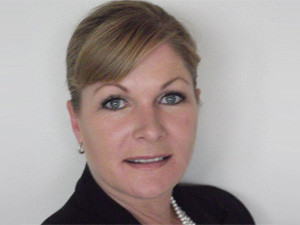
Fibre industry lobby group, the FTTH Council Africa, has begun a process of self-regulation with the introduction of a code of conduct that obligates member organisations to operate under ethical and quality service standards - and holds them accountable for failing to do so.
FTTH Council CEO Juanita Clark says the code, signed by the council's 36 members yesterday, was born out of a want to show good faith to local authorities.
"With the deployment and influx of new telecommunications infrastructure, the telecoms industry has started carrying a lot of the blame for open trenches and shoddy workmanship in the jurisdiction of local authorities. But there are various projects under way at any given time and in cases where we have responded to complaint, it has turned out not to be linked to telecoms work."
Clark says the council hopes the code of conduct will act as surety for local authorities and make the process of wayleaves quicker and easier.
She says the high-level code of conduct document embodies a commitment from members to ethical work and a clean, solid industry. "[For example] it says we will not pay anyone for speedy approval of wayleaves. It says: 'We know legislation is not yet where it should be, but until it is, we are saying we will be held accountable for our actions'."
Council president Richard Came says: "The legislative and regulatory environment does not call for ethical codes of practice and how member companies conduct themselves. We have taken it upon ourselves as an industry organisation to fulfil that role."
Appeasing authorities
Came notes that Africa is behind the curve in terms of its appreciation of the need for fibre optics and the regulatory regime necessary for co-ordinated infrastructure delivery.
"Authorities need to streamline processes and reduce the red tape involved in completing processes like right of way approvals. This situation is not unique to SA and across Africa we find a similar landscape."
At the same time, says Came, the council recognises the concerns of authorities and their mandate to manage their assets. "It is with that in mind that we have decided to develop a code of conduct for our member organisations."
He says the FTTH Council has made the code of conduct document available to local authorities for their input and it has been met with an "extremely positive" response.
"The code of conduct will be distributed to all local, provincial and national authorities. The main intent is to bind our members to adherence to civil engineering, health and safety standards, and enable authorities to streamline and simplify the approval process.
"An industry-generated code of conduct will benefit authorities as they will be assured all FTTH Council Africa members uphold the standards stipulated therein, in addition to providing local authorities with an avenue to lodge formal complaints against companies that do not abide by the code."
Member organisations that do not abide by the code will be investigated, and repeat or serious offenses may result in termination of membership, says the FTTH Council Africa.
Share